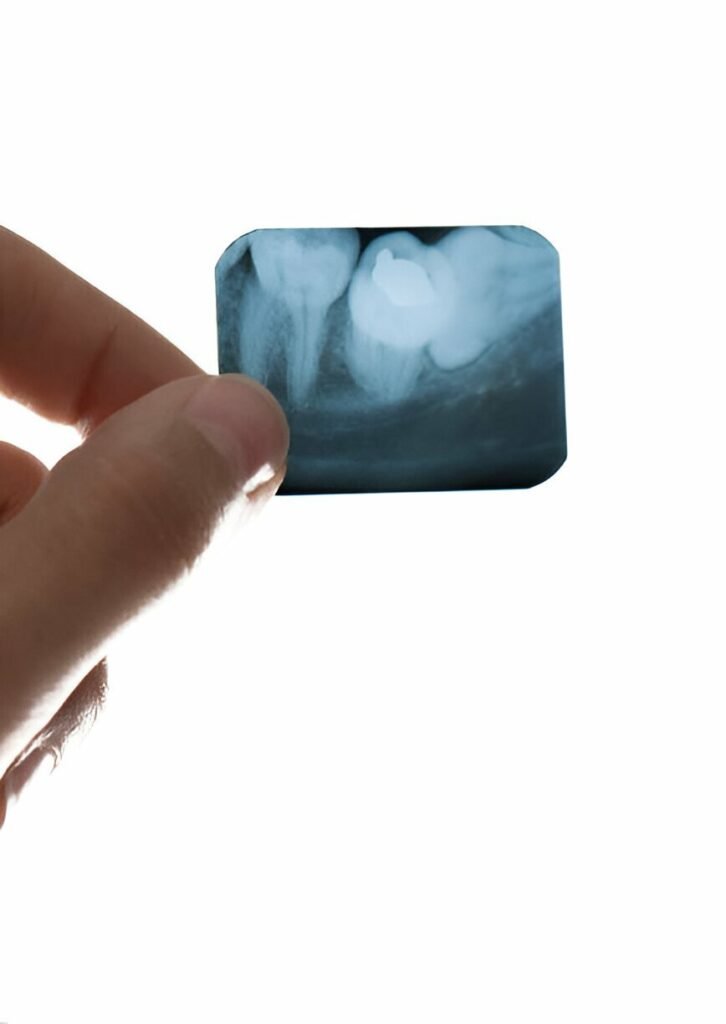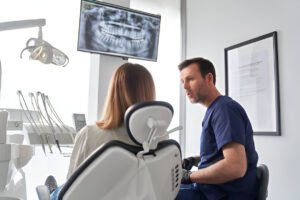Peri-implantitis is a serious condition affecting dental implants. It is an inflammatory process that leads to the loss of supporting bone around an implant. Many wonder if this condition can be detected through an X-ray. This article aims to answer that question and provide valuable information on how peri-implantitis is diagnosed and treated.
What is Peri-Implantitis?
Peri-implantitis is similar to gum disease but occurs around dental implants instead of natural teeth. It involves inflammation of the gum and bone loss around the implant. If left untreated, it can lead to the failure of the implant. The early detection and management of peri-implantitis are crucial for maintaining oral health and the longevity of dental implants.
How is Peri-Implantitis Detected?
There are several methods to detect peri-implantitis. Dentists typically use clinical examinations and imaging techniques. One common imaging technique is the X-ray. But how effective are X-rays in detecting peri-implantitis?
X-Rays and Peri-Implantitis
X-rays are a valuable tool in dental diagnostics. They provide detailed images of the bone and structures around teeth and implants. However, X-rays have their limitations. They may not always show the early stages of peri-implantitis.
Can X-Rays Show Early Peri-Implantitis?
In the early stages, peri-implantitis may not cause significant bone loss. This means that an X-ray might not detect it. Early peri-implantitis is often identified through clinical signs such as bleeding gums, swelling, and pus around the implant. A dentist might use a periodontal probe to check for pockets around the implant. These pockets can indicate inflammation and early bone loss.
Advanced Peri-Implantitis on X-Rays
As peri-implantitis progresses, it causes more bone loss. At this stage, X-rays become more useful. They can show the extent of bone loss around the implant. This helps the dentist to diagnose the severity of the condition and plan the appropriate treatment.
Other Diagnostic Tools
While X-rays are helpful, they are not the only tool for diagnosing peri-implantitis. Other imaging techniques, such as 3D cone-beam computed tomography (CBCT), provide more detailed images. These advanced imaging methods can show the bone structure in three dimensions, making it easier to detect bone loss.
Importance of Regular Check-Ups
Regular dental check-ups are crucial for early detection of peri-implantitis. During these visits, the dentist will check your implants for any signs of inflammation or bone loss. Early intervention can prevent the progression of peri-implantitis and save your dental implants.
Treatment Options
The treatment of peri-implantitis depends on the severity of the condition. In the early stages, non-surgical treatments might be sufficient. These include professional cleaning, antibiotic therapy, and improving oral hygiene practices. In more advanced cases, surgical intervention may be necessary. This can involve procedures to remove infected tissue, regenerate lost bone, and stabilise the implant.
Preventing Peri-Implantitis
Prevention is always better than cure. Maintaining good oral hygiene is key to preventing peri-implantitis. Brush your teeth and implants twice a day, and floss daily. Regular visits to the dentist for professional cleanings and check-ups are also important. Avoid smoking, as it increases the risk of peri-implantitis.
Conclusion
Peri-implantitis is a serious condition that can compromise the health of your dental implants. While X-rays are a useful tool in detecting advanced peri-implantitis, they may not always show early signs of the condition. Regular dental check-ups and good oral hygiene are essential for the early detection and prevention of peri-implantitis. If you have dental implants, take care of them to ensure they last for many years.
Final Thoughts
Understanding the role of X-rays in detecting peri-implantitis can help you stay informed about your dental health. Always consult with your dentist if you notice any signs of inflammation around your implants. Early detection and treatment are key to maintaining the health and longevity of your dental implants. Remember, prevention is the best defence against peri-implantitis.
Schedule Your Appointment at Bridge St Aesthetic and Dental Implant Clinic
At Bridge St Aesthetic and Dental Implant Clinic, we are dedicated to providing top-quality dental care. If you are concerned about peri-implantitis or need a check-up, schedule an appointment with us today. We also offer NHS Dental care in Aberdeen, ensuring that everyone has access to excellent dental services. Your dental health is our priority—book your visit now and take the first step towards a healthier smile!
Frequently Asked Questions
How is peri-implantitis detected?
Peri-implantitis is detected through clinical exams, X-rays, and other imaging techniques like CBCT, which show bone loss and inflammation around the implant.
Can X-rays detect early peri-implantitis?
X-rays may not detect early peri-implantitis due to minimal bone loss. Clinical signs like bleeding gums and swelling are better indicators in early stages.
What are the treatment options for peri-implantitis?
Treatment options include professional cleaning, antibiotic therapy, and improved oral hygiene for early stages. Advanced cases may require surgical intervention to remove infected tissue and regenerate lost bone.
How can peri-implantitis be prevented?
Maintain good oral hygiene by brushing and flossing daily, and attend regular dental check-ups. Avoid smoking to reduce the risk of peri-implantitis.
Why are regular check-ups important for implant health?
Regular check-ups allow early detection of peri-implantitis, enabling timely intervention to prevent progression and ensure the longevity of dental implants.






